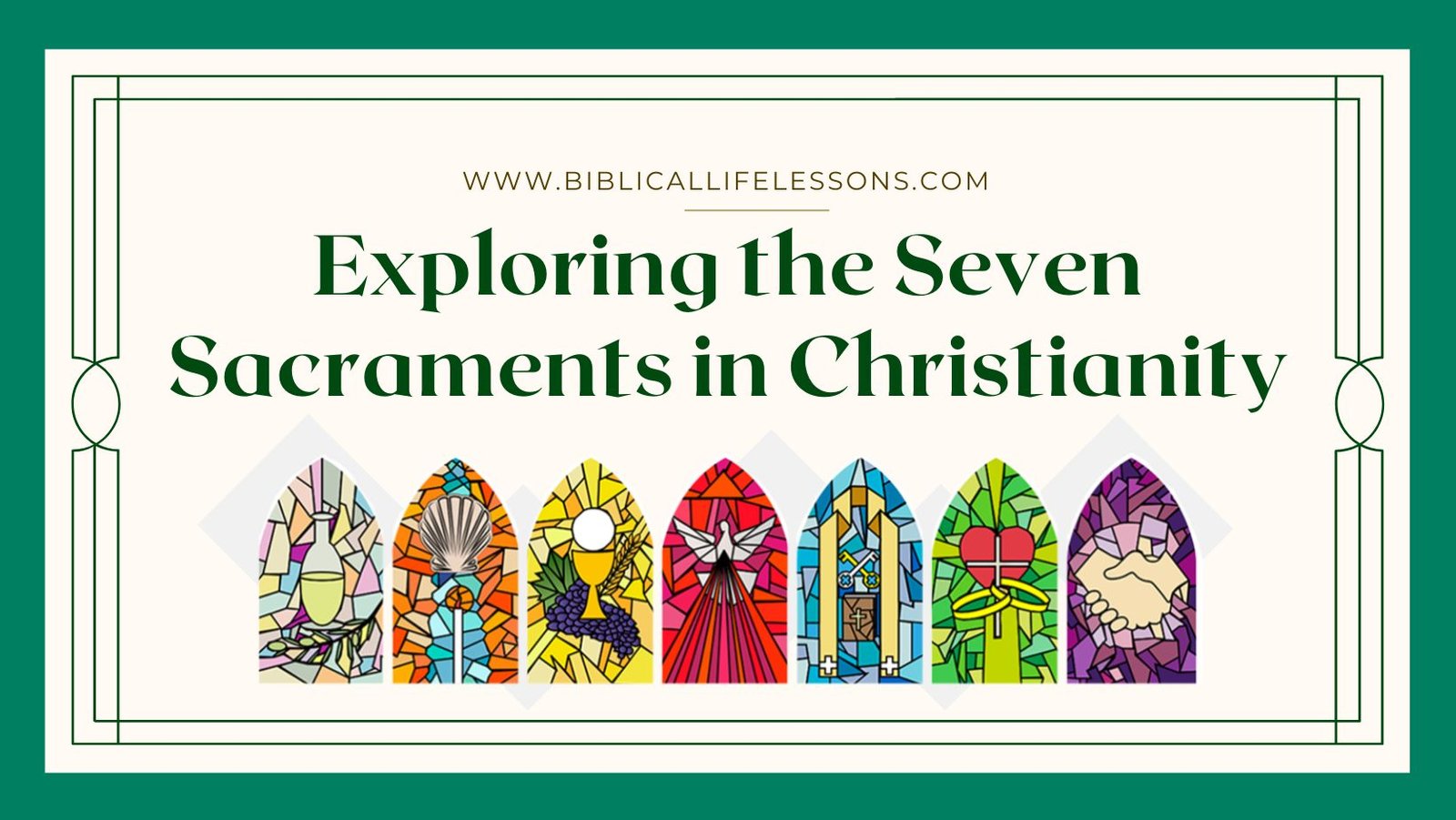The Seven Sacraments constitute the heart of Christian worship and practice, embodying profound spiritual truths and divine grace. Rooted in Scripture and tradition, these sacred rites serve as visible signs of God’s presence and love in the lives of believers. Let us delve into each sacrament, drawing insights from the Bible and Christian theology.
1. Baptism: Initiation into the Body of Christ
Baptism symbolizes spiritual rebirth and initiation into the Christian faith. As Jesus instructed in Matthew 28:19-20 (NIV),
“Therefore go and make disciples of all nations, baptizing them in the name of the Father and of the Son and of the Holy Spirit, and teaching them to obey everything I have commanded you.”
Through baptism, individuals are cleansed of sin and welcomed into the family of God.
2. Confirmation: Sealed with the Holy Spirit
Confirmation is the sacrament in which baptized individuals receive the fullness of the Holy Spirit.
Acts 8:17 (NIV) recounts,
“Then Peter and John placed their hands on them, and they received the Holy Spirit.”
This sacrament strengthens the believer’s bond with the Church and empowers them to live out their faith with boldness and conviction.
3. Eucharist (Holy Communion): Nourishment for the Soul
The Eucharist, or Holy Communion, commemorates the sacrificial death and resurrection of Jesus Christ. In Luke 22:19-20 (NIV), Jesus said,
“This is my body given for you; do this in remembrance of me. … This cup is the new covenant in my blood, which is poured out for you.”
Through the sharing of bread and wine, believers participate in the body and blood of Christ, experiencing spiritual nourishment and unity with fellow believers.
4. Penance (Confession/Reconciliation): Receiving God’s Forgiveness
Penance enables believers to seek forgiveness for sins and reconcile with God and the Church.
James 5:16 (NIV) exhorts,
“Therefore confess your sins to each other and pray for each other so that you may be healed. The prayer of a righteous person is powerful and effective.”
Through confession and absolution, believers experience the liberating grace of God’s forgiveness and restoration.
5. Anointing of the Sick: Healing and Comfort in Times of Illness
The Anointing of the Sick brings spiritual and physical healing to those who are suffering.
James 5:14-15 (NIV) states,
“Is anyone among you sick? Let them call the elders of the church to pray over them and anoint them with oil in the name of the Lord. And the prayer offered in faith will make the sick person well; the Lord will raise them up.”
This sacrament offers solace and strength to the sick and infirm, affirming God’s presence in times of trial.
6. Holy Orders: Ordination to Serve God’s People
Holy Orders is the sacrament by which men are ordained for ministry in the Church.
1 Timothy 4:14 (NIV) says,
“Do not neglect your gift, which was given you through prophecy when the body of elders laid their hands on you.”
Through ordination, ministers are called to shepherd God’s flock, proclaim the Gospel, and administer the sacraments with reverence and humility.
7. Matrimony (Marriage): Union in Christ’s Love
Matrimony is the sacrament of marriage, uniting a man and a woman in lifelong commitment and love. Mark 10:9 (NIV) declares,
“Therefore what God has joined together, let no one separate.”
In marriage, couples mirror the selfless love of Christ for his Church, building a foundation of mutual respect, fidelity, and devotion.
In conclusion, the Seven Sacraments are sacred rituals that enrich the spiritual journey of believers and strengthen their relationship with God and the Christian community. Rooted in Scripture and tradition, these sacraments embody the profound mysteries of God’s grace and love, inviting believers to encounter Christ in profound and transformative ways. As Christians partake in the sacramental life of the Church, they are drawn closer to the heart of God and empowered to live out their faith with courage, compassion, and joy.
Subscribe for Daily Email Devotionals










